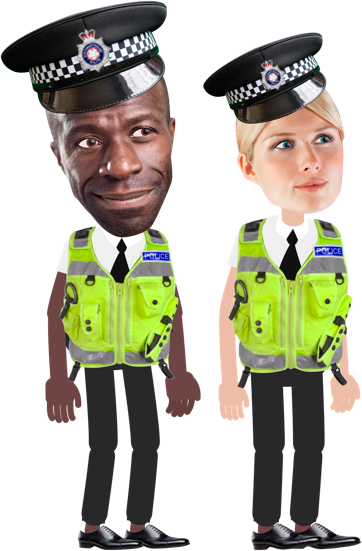This page will take 10 mins to read
I haven’t reported a crime
Why should I report a crime?
By sharing information you have about a crime that has been or may be committed, you can help the police solve crimes and prevent future crimes from taking place. Voice understands that it may be difficult to report an incident, but we encourage you to do so and we will listen, give guidance and support whilst treating you with dignity and respect. If you have been involved in a serious or sensitive crime, we have specially trained staff who will understand your needs and look after any of your concerns.
- No investigation
- Very little chance that the offender will be caught or brought to justice
- More people who may suffer what you’ve been through
- No clear picture of crime across Northamptonshire, making it harder for us to deal with future problems
- Carry out an investigation, looking at the details of the crime including any potential evidence
- Examine to see if it is linked to other crimes. If so, then the local police may direct extra resources to the area to prevent other people from becoming victims of crime
- Log any property involved, which will be returned to you if recovered
- Give you the opportunity to talk through your concerns about what happened and to receive reassurance
Refer you to Voice, who can help you cope with both the emotional and practical impact of crime
x CloseHow to report your crime:
If it’s an emergency, dial 999 and ask for the police. When it’s not an emergency you can call 101 or visit your local police station.
A report should be made as soon as possible after the crime occurs. This enables the police to investigate the crime before valuable evidence is lost or destroyed.
You can also report a crime to Northamptonshire Police online by clicking here.
Who can report the crime?
Anyone who knows about a crime can report it to the police. This includes:
- The victim of the crime
- A person who has seen the crime (sometimes called an eyewitness)
- The person who has committed the crime
- A person who knows about the crime can make an unofficial report even if they have no personal knowledge of, or involvement in, the crime
- A friend or relative of the victim may escort the victim to a police station and assist them to report the crime.
What happens after I report a crime?
When you make a report, tell the police exactly what happened. The police officer will write down what you say.
After you have reported a crime, the police will:
- send you a letter or a complaint acknowledgement form with a file reference number
- explain the investigation process
- ask you if you want to stay informed about the progress of your case
- ask you how you would like to be contacted
- refer you to Victim Support / Voice Northants or other support services if you need them.
- After you have made your report (also called a ‘complaint’), the police will give you a police occurrence reference number. This is a 16 digit number, unique to your report. You should always refer to this number when you contact the police. You can also use this to track your crime online here.
If you decide to report a crime please call 999 in an emergency, or otherwise please call 101.
What happens from here?
Next section: Will my crime be investigated?Last modified 22nd February 2017


There are many different ways to contact the Police:-
· 999 in an emergency – Use this if you or somebody else is in immediate danger
· 101 – Police non-emergency number
· Online (click here to be re-directed – non emergency only)
· Crime Stoppers (click here to be re-directed)
· Voice on 0300 303 1965




 Completed Section
Completed Section  Current Section
Current Section  Not Started Section
Not Started Section
 Swipe to view stages
Swipe to view stages
 Reporting a crime
Reporting a crime The Police Investigation
The Police Investigation Going to court
Going to court After sentencing
After sentencing Support after sentencing
Support after sentencing
